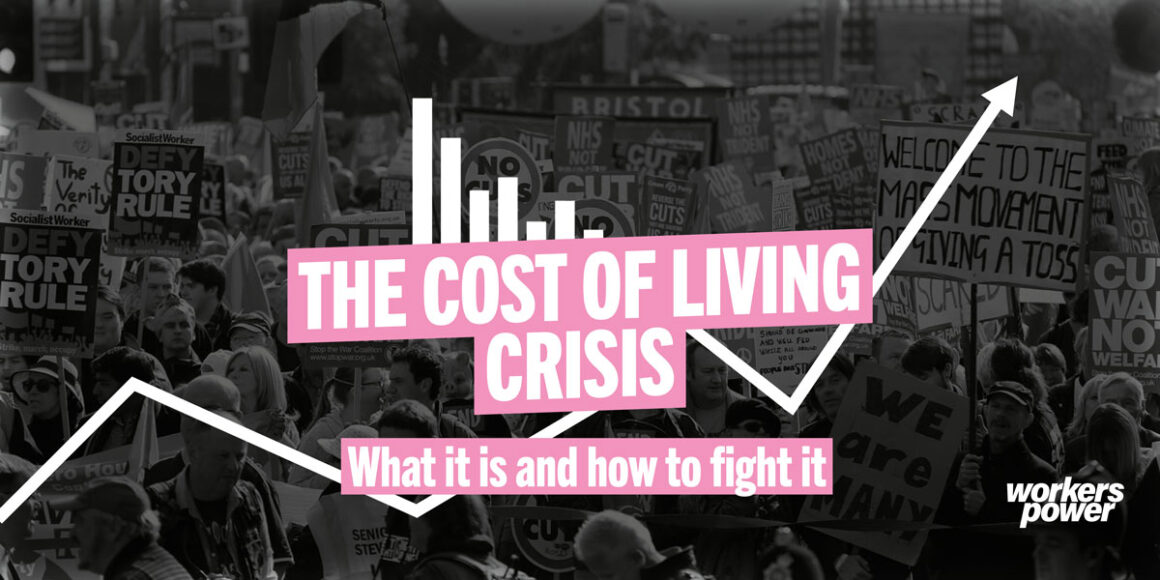

BRITAIN IS facing a winter of discontent in the shape of the biggest wave of strikes for many years. This is despite the serious legal obstacles and restrictive balloting rulings to taking industrial action and despite the threat of a new law threatening to impose minimum levels of service during a strike.
The wave began as a ripple of one day actions by rail workers in the summer and grew in the autumn. The Office for National Statistics reports 417,000 working days were lost to strikes in October, the highest monthly tally since November 2011. Between June and October, more than 1.1 million working days were lost, the highest in a five-month period since early 1990.
Strikers ranged from rail workers to teachers and lecturers, postal staff to civil servants, border force staff to barristers, bus drivers to dock workers. No wonder, since inflation hit a 41-year high of 11.1% in October and most of these workers had had below inflation settlements for years. A wages explosion was inevitable but could it shift a government pledged to clawback the sums expended in fighting covid?
Strike wave
Rail workers took the lead back in June when they launched their campaign under the slogan Bust the Transport Workers’ Pay Freeze, with a series of one day strikes by 40,000 rail workers. Royal Mail workers struck for the 14th time on 13 December following their 20,000 strong rally and march in central London the previous week. On 15 December, NHS nurses in the Royal College of Nursing (RCN) took their first national strike action in the RCN’s 106-year history. An estimated 100,000 nurses will strike at 76 hospitals and health centres. A strike by more than 10,000 ambulance staff is due on 21 December.
One thousand Unite members, who work on 59 bus routes for the Abellio bus company in south and west London are striking this December. Meanwhile, more than 2,000 Metroline bus drivers in London called off industrial action after accepting an 11% pay rise deal, with a 10% increase in back pay. They were originally offered a 4% increase.
Thousands of university workers in the UCU struck on 24, 25 and 30 November. Workers struck alongside 4,000 National Education Union (NEU) union members at sixth form colleges. On the latter date they were joined by students and other trade unionists to hold a militant mass rally outside King’s Cross station before setting off on a march into central London. It marked the third day of strikes by 70,000 UCU union members at universities across Britain in their fights over pensions, pay, casualisation, workloads and equalities.
Coordinate and escalate
A whole series of unions, including sections of Unison and Unite, the country’s two largest unions, are balloting for strike action in the New Year. Picket lines have multiplied and other union members, students and campaigners have joined them, as the size of marches and rallies have grown. The possibility is growing of all the separate wages struggles coming together. But although union leaders raise the slogan, ‘coordinate and escalate’ from their platforms, they have done little to ensure that happens.
The Enough is Enough campaign and the People’s Assembly, seemed as though they might do this. But their unexplained rivalry and unnecessary duplication seems to have frittered away this early promise, although the PA is holding a conference in January. The danger is that the rival union leaderships and political groups are fearful of losing control to democratic gatherings of delegates from local and rank and file bodies that could decide on alternative courses of action. However, militants from the various disputes, meeting up on the picket lines, can and must build solid links with one another. They need to build local coordinating bodies at a grassroots level.
Another dark cloud is on the horizon: Rishi Sunak’s threat to rush another anti-union law through parliament which would cripple the power to strike of nurses, posties and rail workers alike. As soon as this is presented, we need to launch a massive campaign to defend our unions. This must aim at mobilising direct action, that is, strike action, to Kill the Bill, as our grandparents did in the 1970s. Its aim should be not just to avoid this new set of chains being fastened on us but to break off all the others, dating back to the time of Thatcher.
All these issues—fighting inflation with wage increases that match its rise point for point; making the employers pay for them out of their stupendous profits; defending and restoring the NHS; renationalising the rail and other services and utilities and freeing our unions from forty years of anti-union laws,will require mass political strike action. To get this going it is no use waiting for the union leaders left or right. We will need to build councils of action with delegates from the workplaces, the communities, the young people. If we do this, we can drive Sunak and his feuding Tories from power, once and for all.